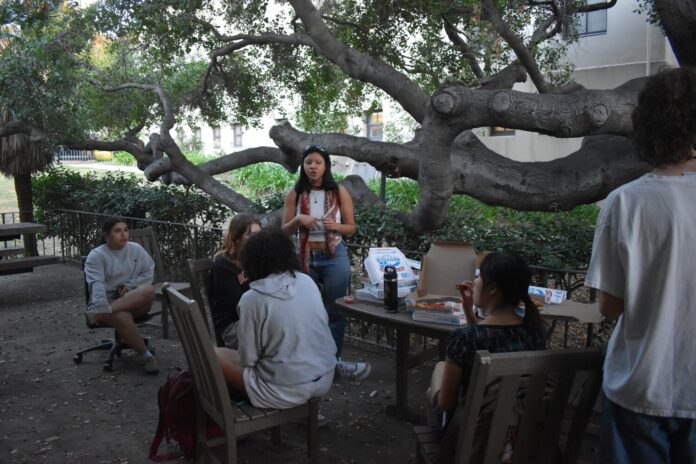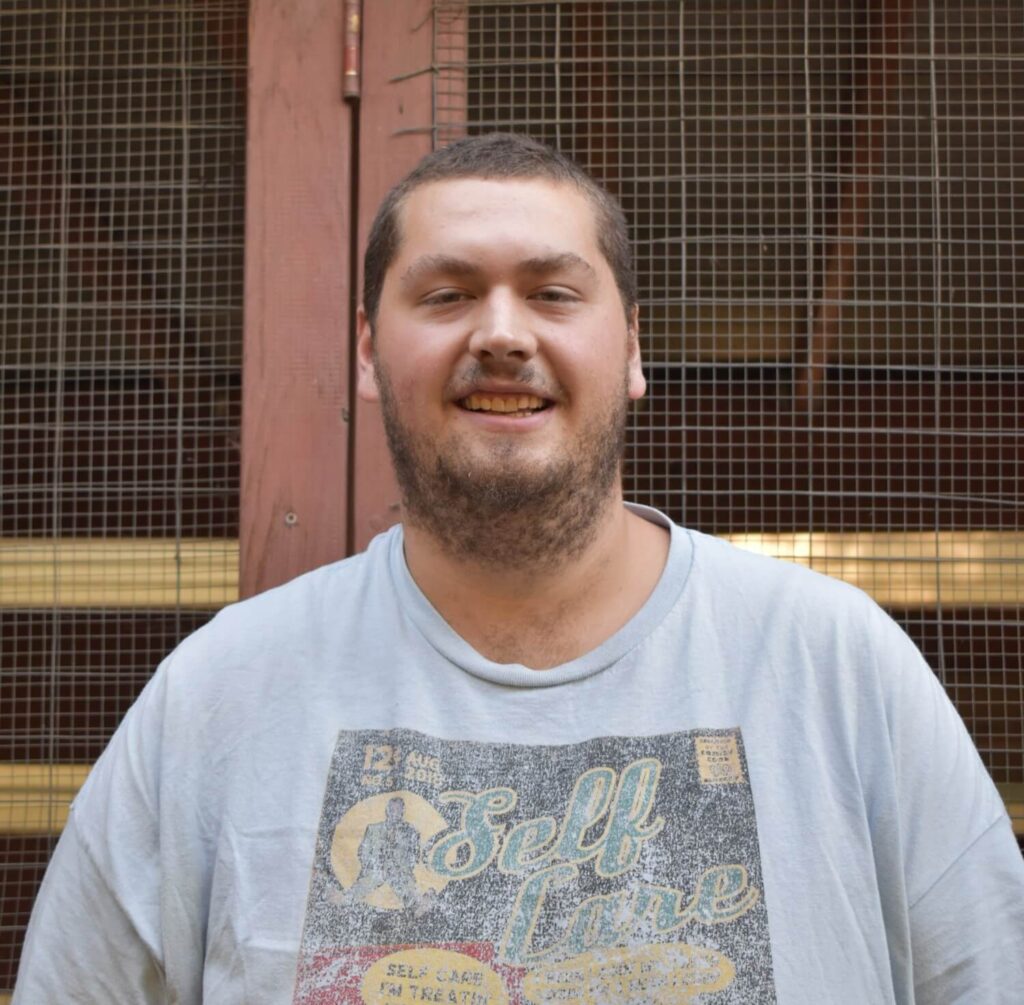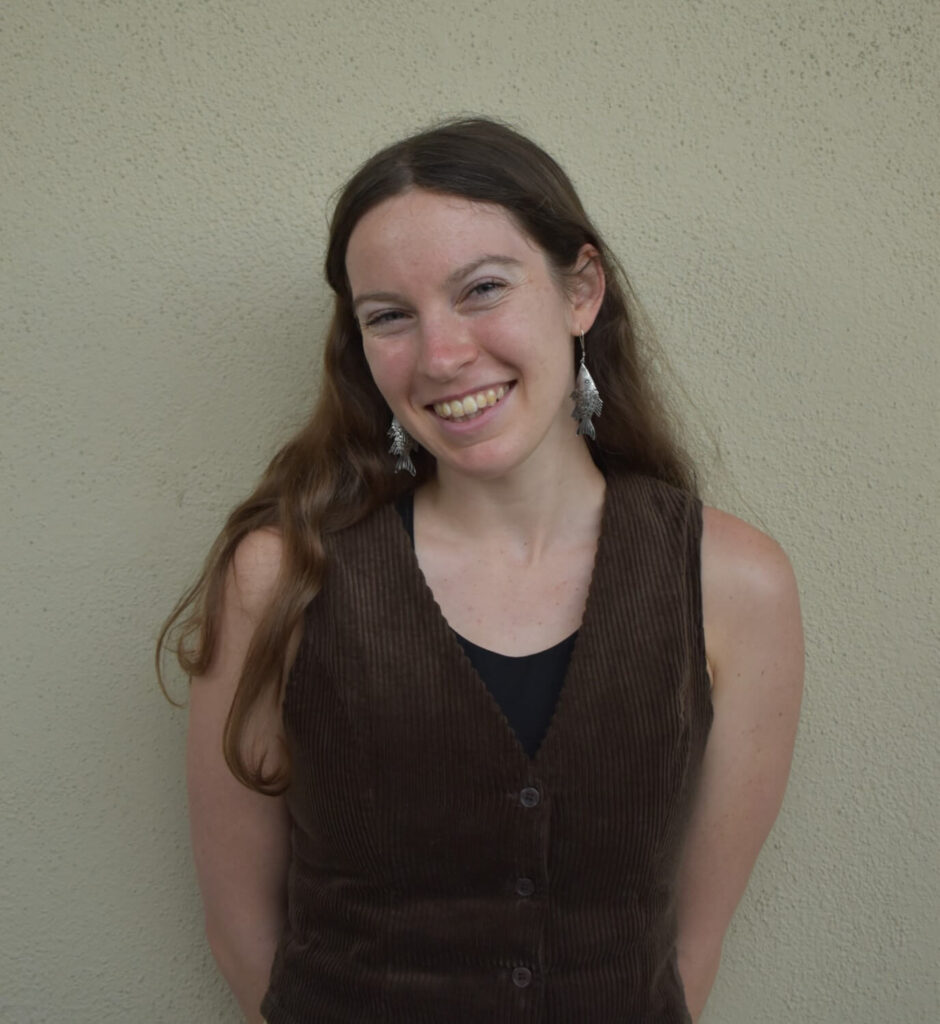
For their final project in Critical Theory Social Justice’s “Fatness” class, Meghan Dayton (senior), Jack Zeltzer (senior) and Amaryllis Argueta ’23 designed an action plan for Fat Oxy (FOXY), a fat liberation campaign. The campaign launched this Fall and was designed to create spaces for fat people, build solidarity within the fat community at Occidental and to deconstruct the gravity of anti-fat bias on campus and across the world.
Anti-fat bias can be a matter of life-or-death, Dayton said.
Professor Caroline Heldman teaches “Fatness,” which she said is the first class on fatness at the undergraduate level in the US. Heldman said anti-fat bias results in neglected medical care for fat people.
“Their medical problems are less likely to be accurately diagnosed and instead are attributed to their body size,” Heldman said.
Heldman also said that fatphobia pulls racism, ableism and other forms of marginalization into perspective because of their similar focuses on the body.
“We see a lot of intersecting systems of power shaping the use of the body to create and oppress marginalized groups,” Heldman said. “If you think about the Rubenesque paintings [or] about Venus de Milo, larger bodies used to be the standard of beauty. Fatness was [later] aligned with black women’s bodies and used as a way to discriminate against them.”
Heldman said the Harvard implicit bias test reveals that media surrounding the obesity epidemic has caused a surge in discrimination against fat people.
“Every other major form of discrimination has either stayed stagnant in the past decade or declined, except for anti-fat bias, which has shot up,” Heldman said. “To my knowledge, [Occidental] is the first campus to include questions of anti-fat bias and fatphobia in the annual climate survey… [revealing that] one in three students face some form of anti-fat bias on campus.”
According to FOXY president Zeltzer, he hypothesizes that Occidental lacks a fat community because of wealth among the student body and the correlation between fatness and socioeconomic-status.
“This is a campus with a lot of folks that are well off,” Zeltzer said. “They have probably had access to better foods growing up.”

According to Zeltzer, one of the main short-term interventions by FOXY at Occidental involves creating designated spaces for fat people. Zeltzer said this was partly inspired by the Plus Bus, a plus-size clothing shop on York Boulevard.
Argueta said that it is uncomfortable to live on a campus where there isn’t a space for a fat community. For instance, Argueta said that the way people verbalize their own eating habits can be fatphobic.
“[Students say,] ‘I can’t eat this, I don’t want to be fat’ because there’s the fear of being fat,” Argueta said. “There’s almost an underlying acknowledgement of how fat people are treated, and so there’s that fear of being treated like that, too.”
Sophie Kaviar (senior), treasurer of FOXY, said that there is a focus on manipulating the body to appear less fat, and verbalizing this intention to others can cause harm. Instead, Kaviar said she recommends that students be considerate when expressing their body image.
“If you’re struggling with body image, and you would like to express that in a way that doesn’t cause harm, you can say, ‘I’m struggling with body image today. Can I have some support with that?’” Kaviar said. “People around you deserve not to be affected by your fatphobia.”

Besides creating designated spaces for fat people at Occidental, Zeltzer also said FOXY is adamant about debunking myths regarding the correlation between fatness and health. One of these myths, according to Heldman, is that you can determine someone’s health from their body size.
Zeltzer said the group will run educational workshops based on their own senior comprehensive projects to address these myths. According to Zeltzer, their teaching philosophy will be based on “Pedagogy of the Oppressed” by Paulo Freire. Zeltzer said Freire critiques the authoritarian structures in the American education system.
“It’s years and years of harmful media depictions that people have been seeing,” Zeltzer said. “How do you actually change someone’s perspective? The teacher and the student both learn.”
Besides these workshops, Zeltzer said a longer-term goal is to install accessible seating in classrooms. According to Zeltzer, this is because these spaces are literally not made for fat people. Kaviar said that inclusive seating would entail chairs without armrests — which can be painful for fat people — that can withstand several hundreds of pounds.
“For fat people that can’t fit in a desk, that’s their daily existence if they go to college,” Zeltzer said.
With some learning, Dayton said the Occidental community as a whole has the potential for limitless love.
“[Students should] work internally to shed that anti-fat bias so that [they] can connect and love all people, not just the bodies [they’ve] been told to love,” Dayton said.
Contact Yanori Ferguson at yferguson@oxy.edu
![]()






























